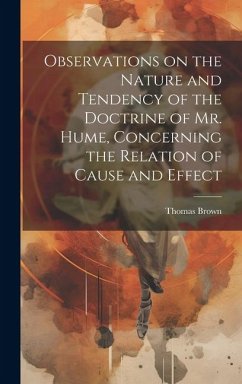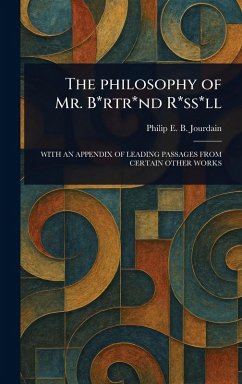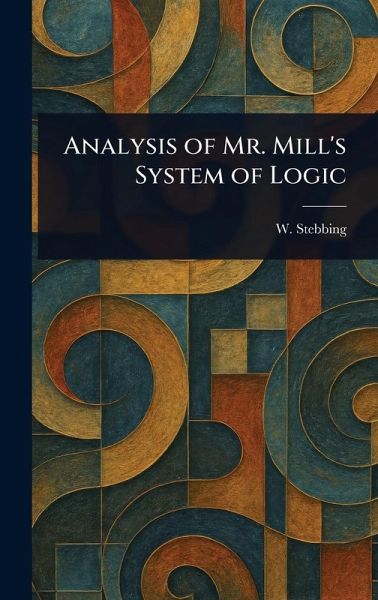
Analysis of Mr. Mill's System of Logic
Versandkostenfrei!
Versandfertig in über 4 Wochen
30,99 €
inkl. MwSt.
Weitere Ausgaben:

PAYBACK Punkte
15 °P sammeln!
William Stebbing's "Analysis of Mr. Mill's System of Logic" offers a deep dive into 19th-century philosophical thought. This meticulous analysis explores John Stuart Mill's influential system of logic, providing a comprehensive examination of its key principles and arguments. A cornerstone of logical and philosophical discourse, the book presents a structured approach to understanding Mill's complex ideas. Stebbing's work is not merely a summary; it's a critical engagement with Mill's framework, dissecting its strengths and weaknesses with precision. Students of philosophy, particularly those ...
William Stebbing's "Analysis of Mr. Mill's System of Logic" offers a deep dive into 19th-century philosophical thought. This meticulous analysis explores John Stuart Mill's influential system of logic, providing a comprehensive examination of its key principles and arguments. A cornerstone of logical and philosophical discourse, the book presents a structured approach to understanding Mill's complex ideas. Stebbing's work is not merely a summary; it's a critical engagement with Mill's framework, dissecting its strengths and weaknesses with precision. Students of philosophy, particularly those interested in the history of logic and the development of analytical thought, will find this book an invaluable resource. Its enduring relevance lies in its clear articulation of core philosophical concepts and its contribution to the ongoing debate surrounding logic and reasoning. A vital text for anyone seeking a deeper understanding of 19th-century philosophical systems. This work has been selected by scholars as being culturally important, and is part of the knowledge base of civilization as we know it. This work is in the public domain in the United States of America, and possibly other nations. Within the United States, you may freely copy and distribute this work, as no entity (individual or corporate) has a copyright on the body of the work. Scholars believe, and we concur, that this work is important enough to be preserved, reproduced, and made generally available to the public. We appreciate your support of the preservation process, and thank you for being an important part of keeping this knowledge alive and relevant.






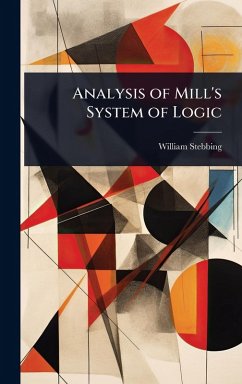
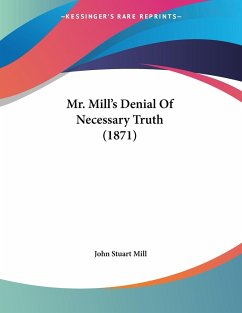
![An Alphabetical Index Of The Philosophers And Discoverers Whose Opinions Are Endorsed Or Controverted ... In L. [sic] S. Mill's System Of Logic Cover An Alphabetical Index Of The Philosophers And Discoverers Whose Opinions Are Endorsed Or Controverted ... In L. [sic] S. Mill's System Of Logic](https://bilder.buecher.de/produkte/74/74361/74361719n.jpg)
![An Essay Concerning Human Understanding. to Which Are Now Added, I. an Analysis of Mr. Locke's Doctrine of Ideas [&c., Incl. Some] Extr. From the Auth Cover An Essay Concerning Human Understanding. to Which Are Now Added, I. an Analysis of Mr. Locke's Doctrine of Ideas [&c., Incl. Some] Extr. From the Auth](https://bilder.buecher.de/produkte/68/68580/68580262n.jpg)

